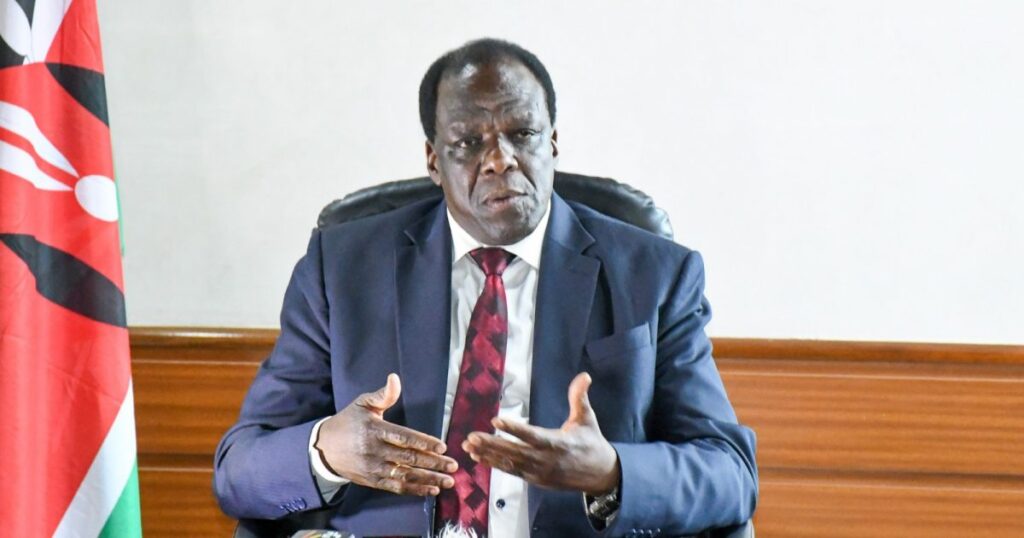
The KUSCCO Scandal: How a Deceased Official Allegedly Authorized a Sh13.3 Billion Fraud
The Kenya Union of Savings and Credit Cooperatives (KUSCCO) has been rocked by one of the largest financial scandals in Kenya’s history. Reports of financial mismanagement, embezzlement, and the use of a deceased official’s signature to authorize transactions have stunned stakeholders in the cooperative sector. A forensic audit revealed how approximately Sh13.3 billion was misappropriated, exposing severe internal governance flaws within this once-trusted institution.
What is KUSCCO?
Founded in 1973, the Kenya Union of Savings and Credit Cooperatives (KUSCCO) serves as the apex body for SACCOs (Savings and Credit Cooperative Societies) in Kenya. Its core mandate includes advocacy, financial support, and capacity building for its member cooperatives. Over the decades, KUSCCO expanded its reach into sectors such as housing, insurance, and mutual assurance through its subsidiaries, including KUSCCO Housing and KUSCCO Mutual Assurance.
As of early 2024, KUSCCO managed over Sh18.9 billion in deposits from its 4,000+ member SACCOs. It played a pivotal role in strengthening Kenya’s cooperative movement, but the scandal has cast a shadow over its reputation.
The Shocking Emergence of the Scandal
The Sh13.3 billion fraud surfaced after the Cooperatives and MSMEs Ministry commissioned a forensic audit of KUSCCO’s financial records, covering transactions between February 2013 and April 2024. The audit, conducted by Grant Thornton, exposed extensive irregularities involving illegal withdrawals, unauthorized cash transfers, and unsupported loans.
One of the most shocking revelations was the use of a deceased official’s signature to approve fraudulent transactions. This alarming discovery has raised serious questions about KUSCCO’s internal management and verification systems.
Breakdown of Financial Mismanagement
The audit highlighted multiple methods of misappropriation, underscoring weaknesses in KUSCCO’s governance and control structures:
1. Illegal Withdrawals
Over Sh5.47 billion was withdrawn in cash over the audit period. Monthly averages reached Sh40.79 million, with these transactions marked as unauthorized. Most lacked proper documentation, suggesting intentional fraud.
2. Unauthorized Cash Transfers
Approximately Sh318.16 million was transferred to personal accounts of senior staff, including:
- Sh67.04 million to a top executive.
- Sh118.05 million to another senior official.
3. Unsupported Loans
Senior staff and directors accessed loans amounting to Sh61.5 million without collateral or formal approval.
- The managing director received Sh50 million.
- The head of KUSCCO Housing Cooperative took Sh7 million.
- Other officials obtained loans totaling Sh4.5 million.
4. Double Land Purchases
The audit revealed a duplicate purchase of the same land parcel for Sh80.55 million, an act indicating collusion.
5. Irregular Payments to Insurance Agencies
KUSCCO Mutual Assurance saw irregular payments totaling Sh434.16 million labeled as commissions, without supporting evidence.
The Role of the Deceased Official
A significant aspect of the fraud was the posthumous use of a former board member’s signature to authorize transactions. Investigators believe the perpetrators deliberately exploited the identity of the deceased official to obscure their activities.
This revelation highlights severe lapses in KUSCCO’s governance, particularly in verifying transaction approvals.
Government Response
The Cooperatives and MSMEs Ministry, led by Simon Chelugui, dismissed the entire KUSCCO board in May 2024. The ministry cited systemic management failures and unreliable financial records as reasons for this drastic action.
To restore confidence, the government appointed an interim board comprising 15 members from affiliate cooperatives. The board was tasked with:
- Conducting further investigations.
- Recovering misappropriated funds.
- Implementing reforms to strengthen KUSCCO’s governance.
Broader Implications for SACCOs in Kenya
The KUSCCO scandal has raised alarms about financial management in Kenya’s cooperative sector, which comprises over 23,000 registered SACCOs. While SACCOs are vital for financial inclusion, the lack of robust governance structures poses significant risks.
1. Erosion of Trust
Members of SACCOs rely on these institutions to safeguard their savings. The KUSCCO heist has undermined this trust, creating apprehension among members.
2. Calls for Oversight Reforms
The government has been urged to introduce stricter regulations, including:
- Mandatory external audits for SACCOs.
- Enhanced financial reporting standards.
- Greater transparency in board appointments.
3. Digitalization of SACCO Operations
Digitizing financial systems can reduce manual errors and prevent fraud. Automated systems can ensure better verification and tracking of transactions.
The Role of Forensic Audits
Forensic audits play a crucial role in uncovering fraud and restoring institutional credibility. The Grant Thornton audit of KUSCCO serves as a reminder of the importance of external oversight in maintaining financial integrity.
What Next for KUSCCO?
1. Recovery of Funds
Efforts are underway to trace and recover the stolen Sh13.3 billion. Authorities are collaborating with banks, forensic auditors, and international financial bodies to identify assets linked to the fraud.
2. Restoring Credibility
KUSCCO’s interim board is focused on restoring member confidence by:
- Enforcing strict governance measures.
- Improving financial reporting transparency.
- Strengthening internal controls.
3. Legal Action Against Perpetrators
The government has vowed to prosecute all individuals implicated in the fraud, including former executives and board members.
Lessons for Kenya’s Financial Sector
The KUSCCO scandal offers valuable lessons for other financial institutions, including banks, microfinance institutions, and cooperative societies. Institutions must prioritize transparency, accountability, and robust internal controls to prevent similar incidents.
Read: Health Ministry Urges Sh4 Billion Support Amid HIV Workforce Funding Crisis
The Sh13.3 billion KUSCCO scandal has exposed deep flaws in the management of one of Kenya’s largest cooperative bodies. While the use of a deceased official’s signature adds a macabre twist, it underscores the lengths to which fraudsters will go to exploit institutional weaknesses.
For Kenya’s cooperative sector to recover and thrive, stakeholders must adopt stringent measures to ensure transparency, accountability, and member protection. Only through concerted efforts can trust be restored in the institutions that form the backbone of Kenya’s financial inclusion efforts.





